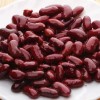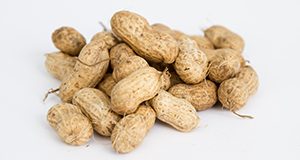Everyone needs folate. It is especially important for women who can become pregnant. Pregnant and nursing women, growing children, and older adults also need plenty of folate. This 2-page fact sheet is a major revision that discusses folate requirements, ways to meet those requirements, and possible effects of folate deficiency. Written by Linda B. Bobroff, and published by the UF/IFAS Department of Family, Youth and Community Sciences, revised February 2018.
http://edis.ifas.ufl.edu/fy186
Tag: Folate
Women's Nutrition: Folate/Folic Acid
 To decrease a baby’s chances of having certain types of births defects, mothers need to have already been consuming enough of the vitamin called folate, or folic acid, before they become pregnant. This article provides information about the folate/folic acid needs of women who are capable of becoming pregnant, including its role in preventing birth defects, sources, and strategies for meeting the recommended intake. This 4-page fact sheet was written by Caroline Dunn and Gail Kauwell, and published by the UF Department of Food Science and Human Nutrition, February 2015. (Photo Credit: Mike Watson Images/moodboard/Thinkstock.com)
To decrease a baby’s chances of having certain types of births defects, mothers need to have already been consuming enough of the vitamin called folate, or folic acid, before they become pregnant. This article provides information about the folate/folic acid needs of women who are capable of becoming pregnant, including its role in preventing birth defects, sources, and strategies for meeting the recommended intake. This 4-page fact sheet was written by Caroline Dunn and Gail Kauwell, and published by the UF Department of Food Science and Human Nutrition, February 2015. (Photo Credit: Mike Watson Images/moodboard/Thinkstock.com)
http://edis.ifas.ufl.edu/fs265
Healthy Eating: Folate (FCS8567/FY066)
 Folate is one of the B vitamins. It is involved in the formation of DNA, the genetic material found in all cells of your body. Folate is an important nutrient for everyone. It is especially important for pregnant and nursing women, growing children, and older adults. Health problems may result if people do not get enough folate. This 2-page fact sheet was written by Linda B. Bobroff, and published by the UF Department of Family Youth and Community Sciences, October 2012.
Folate is one of the B vitamins. It is involved in the formation of DNA, the genetic material found in all cells of your body. Folate is an important nutrient for everyone. It is especially important for pregnant and nursing women, growing children, and older adults. Health problems may result if people do not get enough folate. This 2-page fact sheet was written by Linda B. Bobroff, and published by the UF Department of Family Youth and Community Sciences, October 2012.
http://edis.ifas.ufl.edu/fy066
Healthy Eating: Folate (FCS8560/FY055)
 Folate is one of the B vitamins. Our bodies use folate to make new cells. Folate is especially important for women of childbearing age, pregnant and nursing women, growing children, and older people. If you don’t get enough folate in your diet, you could get anemia. You also could be at higher risk for heart disease, stroke, cancer, or memory problems. This 1-page large print fact sheet was written by Linda B. Bobroff, and published by the UF Department of Family Youth and Community Sciences, September 2012.
Folate is one of the B vitamins. Our bodies use folate to make new cells. Folate is especially important for women of childbearing age, pregnant and nursing women, growing children, and older people. If you don’t get enough folate in your diet, you could get anemia. You also could be at higher risk for heart disease, stroke, cancer, or memory problems. This 1-page large print fact sheet was written by Linda B. Bobroff, and published by the UF Department of Family Youth and Community Sciences, September 2012.
http://edis.ifas.ufl.edu/fy055
Healthy Eating: Folate (FCS8567/FY066)
Folate is one of the B vitamins. It is involved in the formation of DNA and amino acids. DNA is the genetic material found in all cells of your body. Amino acids are the building blocks of proteins. Learn more about this important vitamins in this 2-page fact sheet was written by Linda B. Bobroff, and published by the UF Department of Family Youth and Community Sciences, December 2010.
http://edis.ifas.ufl.edu/fy066
